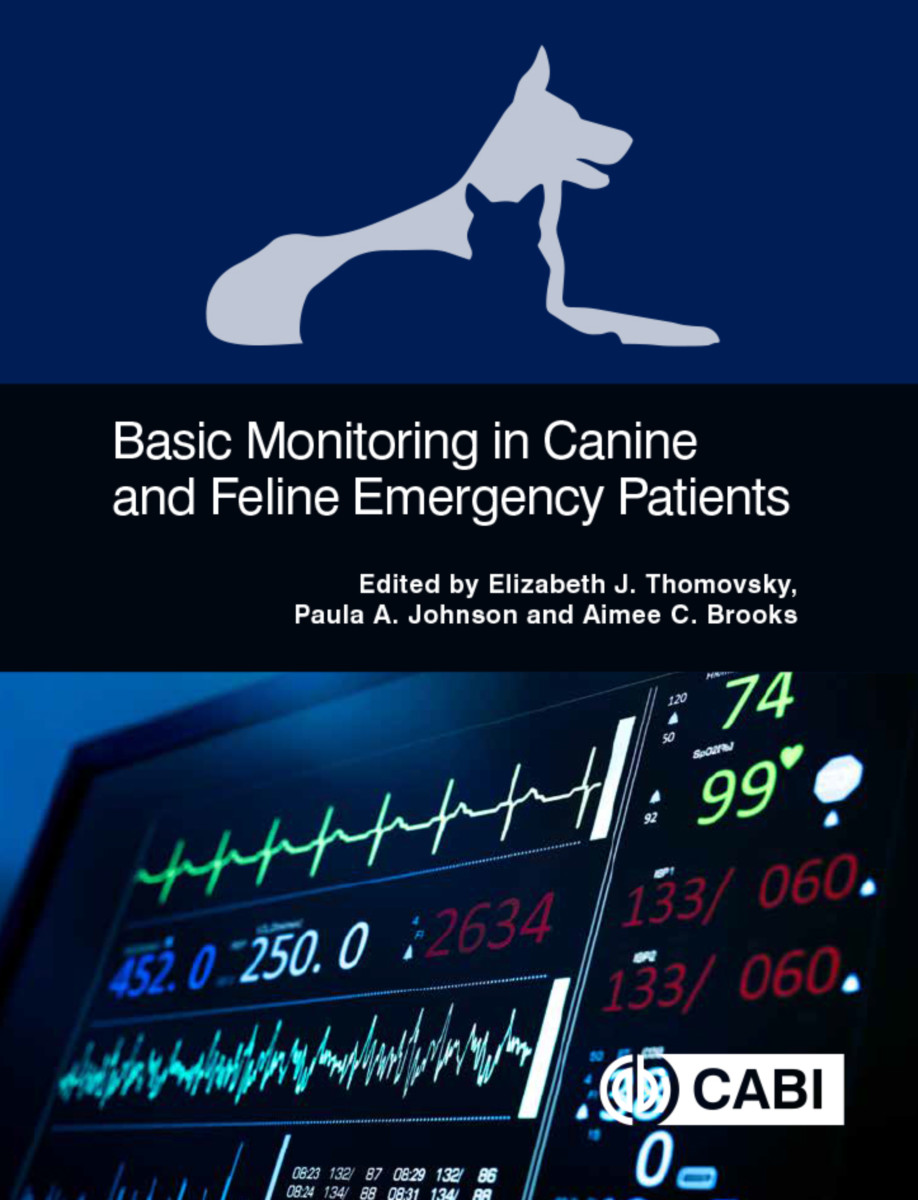Basic Monitoring in Canine and Feline Emergent Patients
- Publisher
CABI - Published
12th May 2020 - ISBN 9781789242997
- Language English
- Pages 256 pp.
- Size 6" x 9"
This book discusses basic monitoring techniques that can be easily performed on emergency canine and feline patients in both first line emergency and primary care clinics. Techniques include blood pressure measurement, capnography, electrocardiography, pulse oximetry, and point of care monitoring ranging from the physical exam to bedside ultrasound and diagnostic tests such as PCV/TP, blood glucose and lactate.
Each chapter begins with basic physiology as related to the monitoring technique, before reviewing how the piece of equipment used for monitoring works, pros and cons of the equipment, and limitations of the device. A simple, consistent layout for each chapter makes it easy to quickly locate information within the book. A final section in each chapter gives practical examples of how to use the monitoring technique in a clinical setting. The book also:
- Emphasizes how physiology ties into what information each technique does (and does not) provide;
- Includes pictures, tables, and diagrams to help explain concepts;
- Delivers guidelines for rational interpretation of the results acquired.
An important resource for both veterinary practitioners and students, this book provides a succinct approach to understanding the monitoring equipment used in emergency patients.
1: Physical Examination and Point of Care Testing
2: Blood Pressure Monitoring
3: Electrocardiography Monitoring
4: Pulse Oximetry
5: Venous and Arterial Blood Gas Analysis
6: Capnography
7: Applications of Serial Focal Ultrasound Techniques in the Hospitalized Small Animal Patient
8: Electrolyte Monitoring
9: Coagulation
10: Manometer Based Monitoring
Elizabeth J. Thomovsky
Elizabeth J. Thomovsky teaches at Purdue University College of Veterinary Medicine.
Paula A. Johnson
Paula A. Johnson teaches at Purdue University College of Veterinary Medicine.
Aimee C. Brooks
Aimee C. Brooks teaches at Purdue University College of Veterinary Medicine.


